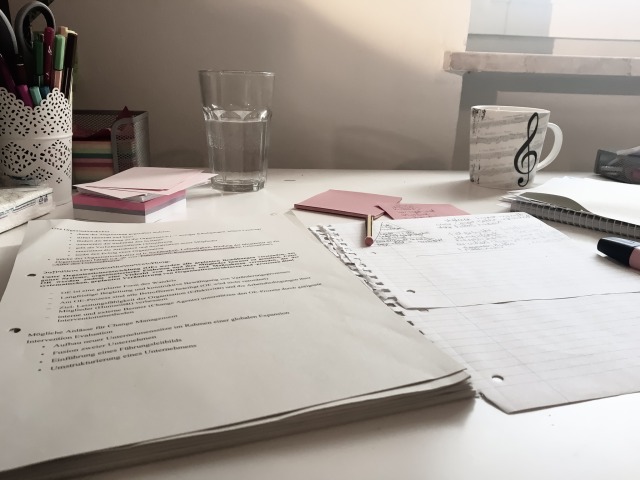#student
Yes, it is possible to save money even on a student budget.
In fact, it can even be fun too! I personally am going through these ‘easy ways to save money’ and still having a blast. Read on to find out what those are…
1. Attend university for free
Yes, it’s possible. In fact I wrote an entire post about it: Yes, you can go to university for free.
Your options include: grants, bursaries and scholarships, the NHS, Armed Forces, sponsorships, apprenticeships, crowdfunding and traveling abroad.
Not paying for university surprisingly does save a lot of money.
Check out the post fam.
2. House hack
Rent is takes a big chunk of your income every month. Many students just accept their fate and believe it’s part of the deal – gotta pay for rent. But what if you got to keep that £400 that disappears every month?
House hacking is possible: live with your parents, live with a roommate, get a flat and Airbnb the hell out of it, do some property investing or just go live in a tent like this guy.
It requires hustle and research, but it’s doable.
3. Become a minimalist
As the word itself says, learn to live with less. The less money you spend on stuff, the more money you get to save. It’s a simple idea really, and practicing it is strangely refreshing. To quote The Minimalists:Imagine living with less so you could have more time, more passion, more experiences, more growth.
Not only will you save a ton of money, but you won’t be falling trap of the consumer society; always buying and buying and consuming more to fill the empty void inside you. Ask yourself: does buying x really add value to my life? If it doesn’t, why are you buying it, really? And if that answer scares you, it’s time for a change.
4. Cook your own food
You would think this is obvious but many people including students simply don’t cook their own food! Eating out several times a week is EXPENSIVE. Takeaway is EXPENSIVE. There’s no point. Plus cooking your own food makes you better at cooking and even makes the food more delicious (yes hello this is myratatouille and it is delicious).
Keep the restaurants and takeaways for special occasions. The more you eat out the less you appreciate it that event of having someone else prepare and lay it out in front of you. Going to a restaurant is a huge event for me nowadays – and now I enjoy it ten times more.
5. Do a ton of discounting
There are a lot of discounts out there for students. A LOT. You just gotta find them. Here is a list of cool stuff you can get student discount on. Get all the railcards and student cards, you never know when they can come in handy.
Look around when you’re on the streets or out shopping. There might be a student sale or some sweet discount out there. And don’t be ashamed to ask the barman whether they do student discounts – we’re all trying to survive here.
6. Hack your loan: start investing
Maybe a little more advanced but a great way to save and hack your money. Following the 15% rule, use the loan money to invest. The minute you receive your loan money, send off a percentage to get invested. Not only will you be saving money, but the interest means you’ll be earning more money on the side! I’m telling you – this is loan hacking. Here’s a guide to getting started with investing.
7. Set a budget every time you go out
Yes, your friends might make fun of you and call you a loser but no worries – you’ll be the one graduating withmoney in your pockets.
But seriously, set a budget. Take only cash, if that works for you. Use an app, do your thing. Learn to control yo’self. Here’s a snazzy guide to budgeting.
8. Compare all your bills: gym, phone, software etc
Take all your ‘mandatory expenses’ and try to decrease them. Your phone bill, the gym, that software, maybe even gas and electricity. Try and find someone else who does it for cheaper. Spend an afternoon on it and then forget about it – you could save hundreds in the long run.
9. Work towards achieving that 15% rule
The golden 15% rule: actively saving 15% of your income (from loan, parents, etc) every month. Here’s an entire article on how to get started.
This 15% rule is what will get you ‘out the rat race’ and will literally change your life.
Check out the post fam.
10. Do some savings challenges: no spend day, cash challenge, etc
There are tons of random savings challenges out there: no spend day, cash challenge, 33 items challenge. Try some and see how it goes. Here are 6 Different Money Saving Challenges you can try out.
Once you try a few of them, you can pick one and keep going. Make up your own challenge: how much money I can save doing saving challenges. Maybe a little nerdy, but useful in the long run.
challenge: how tall can the coin tower get?
11. Use savings apps
Just like the savings challenges, these apps will encourage you to save ‘by accident’. They use tactics such as rounding up a purchase: you spend £2.50 on a coffee and the app rounds it up to £3.00 and saves you £0.50. Or it just randomly takes out some money at odd times of the day/week.
The best savings apps are: Chip (read a reviewhere),MonzoandFolio. You can also try out some investing with MoneyBox.
12. Do NOT buy the next cool gadget
Still not a minimalist? That’s fine, but there’s still no point in consuming for the sake of consuming. If your phone is working perfectly fine and the next version comes out – how about notbuying it? Remember, will it really add value to your life? Probably not, and if you think about it will probably remove value since your pockets will be a little lighter.
13. Buy stuff second hand
The UK is one of the few places which is really good at this: second hand stuff. There are charities littered all over the streets and you can find a few gems here and there. You find stuff online too with our good friends GumtreeandCraigslist. Think about it, do I really need this thing to be brand new? If not, go do some second-hand shopping. You’d be surprised with what you can find…
14. Make sure your employer doesn’t make you pay tax
If you earn under £11,500 a year, you don’t need to pay tax. If you do, you pay 20%. When working at a part time job, it’s unlikely you’ll be earning more than your allowance, however your employer is still likely to put you under the PAYE scheme. Normally, the HMRC will send you a tax refund called P800. But if you want to claim it now, you can do so using a P50 form. Some nice quick and easy money.
15. Flat parties instead of going out
Going out in the UK is expensive, especially if you live in the area of London (I don’t know how you people survive). How about doing a flat party/drinks instead? With my group of friends we regularly do poker nights, board game drinking nights and even some home-cooking and chilling.
There are tons of ways to have fun without going out. Yes, I sound like a boring old trout, but it’s totally true. And if you’re friends are only interested in having fun when their ££ is flying away, look for some different friends who’ll chill at home with you. Trust me, they’re the cool ones.
16. No book buying
Google ScholarandGoogle Books can be your saviour for both research and text books. All the stuff the uni makes you pay for – how about getting it for free? And if Google Scholar and Books don’t have what you’re looking for, ask someone else at uni if you can buy their book second hand. Or… jump onto GumtreeorCraigslist. Doing a bit of hustling and finding cheaper textbooks can go a long way.
17. Find free stuff and use it
Students are known to be good at getting free stuff. Save the Student has an awesome list of free stuffyou can take advantage of as a student.
Other places to get free stuff are: Fresher’s and societies fairs, student gigs, only using free trial (Spotify here I come), using the Gumtree ‘for free’ section, attending launch days (a supermarket, cinema, shop opening up), and cashback apps.
18. Learn to travel hack
Travel hacking is the ultimate key to traveling for cheap and making it enjoyable at the same time. It doesn’t mean trying to cut every single penny and starving yourself all day, it’s simply being clever with your money: cooking at the hostel instead of eating out, not buying useless souvenirs, doing your research before taking public transport, etc.
After 2 years of traveling on a tight budget, I believe I mastered it using apps such as Couchsurfing,RyanairandGoEuro. For more info on how to travel hack, I wrote a snazzy guide on mastering the art of budget travel.
So – 18 ways to save money as a college student. Some are easier than others, but they’re all doable. And the result could be hundreds or even thousands of pounds saved up! What could you do with an extra £1,000 a year? You could invest it, build an emergency fund, save up for a nice trip, or even get started on your path to Financial Independence. The possibilities are infinite, and you get to choose what happens with them.
Read more over at Financially Mint
Going to start writing and posting case studies on how other students budget and manage money in university.
What do you think? Will it be helpful?
(viaHow Victoria from Glasgow Manages Her Money)
A new student case study series! I ask fellow students how they manage their money and write about it - this one is my good friend Victoria.
Interested in answering a few questions? Don’t hesitate to pop me a message ;)
Post link
(viaYes, You Can Go to University for Free)
Fellow British students! You CAN go to university for free. All you need is a bit of hustle and research and you’ll get there. Here’s a guide on how to get started!
Post link
Do you think money is evil?
Do you think we’re better off as far away as possible from it?
Do you think it’s the reason for all our problems?
Post link
So you want to be an entrepreneur in university. Yay!
Building your own business in university is awesome – there are tons of opportunities, networks and tools to help you out. And if it fails, what’s the worst that could happen? You add it to your CV as a ‘lesson learnt’. University is one of the best times to start a business – you’ve got more time and more energy, so it really couldn’t be better.
Here are some steps you can take to get started on the bizz.
1. The birth
You may have an idea, you may not. That’s fine: all you need to get started is the will – the way will come later.
If you have literally no idea where to even get started, it’s time to do some research. Do you want to create something online (blog, dropshipping, freelancing)? Do you want to be producing something? Or offering a service? Take a look at what other students have done and see if there’s something similar there for you.
What you’re looking for: something that solves a problem. What product/service could you offer that helps people solve a problem?
Read books, listen to podcasts and read blogs to do more research. Some business books out there will give you great ideas and a ton of motivation to get started: Side Hustle by Chris Guillebeau, Dream Year by Ben Arment. Side Hustle Nation is a great podcast with tons of business ideas, and blogs such as Chris GuillebeauandRyan Robinson are also great.
If you surround your brain with as much interesting info out there, it will absorbs the cool stuff and eventually spit out a good idea. You just have to keep working at it.
Or you could also try being an idea machine for a few months…
2. The modeling
The most daunting part: creating a plan. This involves trying one thing, testing, then trying another thing, testing, and on and on and on. Here are some questions you can base your business model on:
What problem does your business solve?
Who are the customers?
What are the most important features of your solution?
Who are your competitors?
What is your unique selling point?
What is your marketing strategy?
How will you measure how well your business is doing?
How will you make the money?
Take it step by step. First, just scribble the answers down and start building the business in your mind. Then, as you start to get a better picture of what you want it to do, start breaking down every question and analysing the answers. Once you can answer all the questions properly, start building your business model – all you need is a pen and piece of paper.
Yes, it may look easier said than done, but the trick is to go bit by bit and do every bit well. Remember how I said you have time in university? You do, so don’t rush it.
3. The talking
Share your business idea and plan to other people. You’d be surprised to hear how much good advice or feedback they can give. If you’re pretty serious about the business, why not share it at a networking event? I talked a lot about Financially Mint to random strangers at networking events and they gave me a lot of ideas for the future of the blog and even other contacts I could talk to.
If you’re too embarrassed or shy to talk about the idea, go online. Ask people on Reddit,QuoraorTwitter what they think of your idea. You never know what you could find: someone who wants to help you out, someone who’s willing to invest in you, or just good advice. But you won’t know unless you put yourself out there.
And if you don’t mind going a bit further, try asking your professor or even career advisor. They can advise you on funding and on how the university can help you out. Try and talk to as many people as possible about it – you never know who might say the exact right thing that’ll take your business one step further.
4. The baby steps
Once you’ve got a rough idea of what your business is about and what the strategy will be, write down the steps you need to take to get started. This helps with the overwhelming thought of ‘Ahhh I’m starting a business’. If you’ve got every step written down you’ll actually feel like you know what you’re doing and that it all follows a logical path.
For example, my business idea is to start a blog about teaching dogs cool tricks. The first three steps could be:
- Prepare 5 blog posts on dog tricks
- Set up a WordPress site
- Design site
Then I could break those three steps down:
- Prepare 5 blog posts on dog tricks
- Set up a WordPress site
- Design site
- Research 5 different dog tricks
- Draft each post
- Edit and add images
- Find a good hosting platform
- Select a domain name
- Start up the website
- Etc, etc, etc
Breaking down every single step makes each part less daunting and more doable. And once you finish one step, tick it off and move onto the next. Ta-da! Business being created.
5. The start
Now to the easy part! You’ve done all the preparation, all the research and all the feedback – now you just have to follow the steps you’ve written above. But let’s keep it organised.
Remember, you are still in college and your priority is still studying for your degree – so you don’t want the business to interfere too much. What I recommend: having a little schedule with the amount of time you’re willing to put into the business every week. Ask yourself whether you can spend ¾/5 hours a week and then slot in when works best for you. And when that time comes round, work on your baby steps.
Eventually you’ll see what works for you and can adapt accordingly.
Now you’re creating a business andyou’re organised. More than most startups can say.
6. The faith
Everyone in the blogging world knows this: if you want to get anywhere, you gotta keep going. Keep putting in those 3 hours a week. Keep improving your business model. Keep asking people for feedback.
This doesn’t just apply to the blogging world, it applies to business in general. You keep improving it until one day your business starts working: your strategy is in place and the $$ is flowing. It may seem a little far off right now, but with perseverance comes results.
But I’m going to stop for a second and say that it’s important to know when to give up. Keep improving and working on your business, but once you reach your limits, you reach your limits. If there is no point in going on, there’s no point. You’re in uni and you have time to learn from your mistakes and start again. There’s no pressure to ‘never quit’. More accurately I’d say: ‘sometimes quit’. Taking a step back and starting again has a lot more benefits than you’d believe.
So, are you thinking of starting a business? Which problem are you thinking of solving? What’s your unique selling point? Lemme know!

I’ve been a bit busy so let me give you a quick update of my life: I got my student visa today I’m officially going to Japan on November 27

12.02.2020 | 17:00
Here’s to the last round! Survived yesterdays exam, next one is on friday! There’s a hell lot to study for, so i’m gonna spend the next two days cramming madly. I’ll be so relieved when this will finally be over! My body is reacting to all the sugar and coffee already - and not in good ways. So i need to reduce that consuming again after this, so that i can stay healthy. Hope you’re all doing good, don’t make the same mistakes than i do! Stay healthy and motivated xx
I‘ll have my last day of lectures on Monday. How do i cooe?






